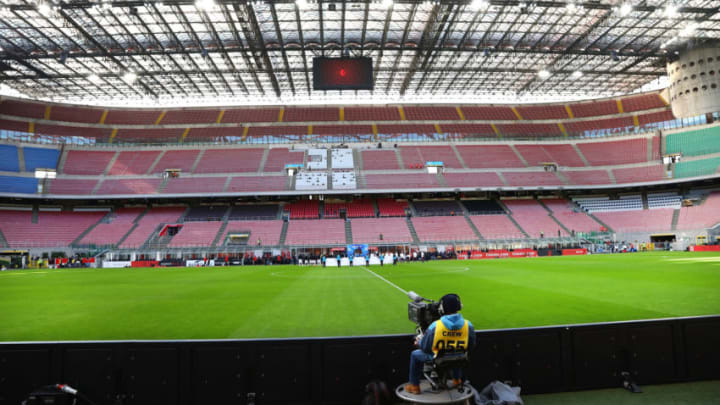Serie A has set June 13 as the date of its return following the coronavirus suspension. What hurdles do they face should teams return to action?
Serie A’s 20 teams agreed this week that June 13, pending government approval, is the date when games could be played again. With all matches suspended since mid-March, soccer’s return will be a welcome respite for a nation that was ravaged by the pandemic.
When the league was suspended, Juventus, looking to win a ninth straight title, were just one point ahead of Lazio, who last captured the scudetto in 2000. With 12 matchdays left on the calendar, Serie A has until the end of July to conclude the season before the Champions League and Europa League are slated to restart.
While the possibility of the league returning to play is exciting, it isn’t without some pitfalls. Below are three roadblocks Serie A could faces once it returns next month.
Players testing positive
The Italian soccer federation said isolating a player who tested positive would be enough if the rest of the team were confirmed to be negative. The Italian health ministry, in response, said an entire team would need to go into a 14-day quarantine. Under those guidelines, the remaining schedule would be thrown into chaos. Players like Juve striker Paulo Dybala, for example, was given the all-clear after he tested positive for the virus.

Sports Minister Vincenzo Spadafora told Italy’s Senate that the government would take its time on making a final decision.
“If [Serie A] resumes, as we all hope, it will be because we will have arrived at this decision after an orderly succession of actions and protocols,” he said on Wednesday. “It is not possible to decide in an irresponsible hurry.”
Serie A could look to the Bundesliga, which will return this Saturday. Countries like France cancelled Ligue 1 and crowned PSG champions.
Fans gathering outside stadiums
Fans have already shown their disapproval since the plan to bring back games requires they be played in empty stadiums. A leaked government document recently revealed that supporters in Italy may not be allowed into stadiums until January 2021, meaning the ban would stretch into next season.

Like the Bundesliga, games would be played in empty stadiums to ensure that the virus not spread any further. Games played in March were later determined to have helped spread the coronavirus in Italy and throughout Europe.
This is not to say fans won’t show up outside stadiums or celebrate in the streets once a champion is crowned. PSG fans gathered outside the club’s stadium in Paris to cheer on the players before their Champions League Round of 16 match against Borussia Dortmund. Despite not being allowed inside the Parc des Princes, some 3,000 fans gathered to show their support.
Italy’s social distancing rules prohibit people from gathering, but that’s not to say it won’t happen.
Questioning the outcome
This being Italy, don’t rule out the scandal won’t be a major storyline once games get underway.

How so? The schedule, should it be halted once again, could create an issue around teams saying the outcome of the league, especially when it comes to qualifying for European competition and which three are relegated, could result in court battles.
Some coaches, like Napoli’s Gennaro Gattuso, and players had started doing this back in March when games in northern Italy were postponed, while the ones in the south, which was less affected by the virus, given the go-ahead to play. Gattuso, for example, said the season had been “falsified” by those decisions.
It’s anyone’s guess what litigation could result should a team or teams feel they were somehow on the wrong end of a decision.
